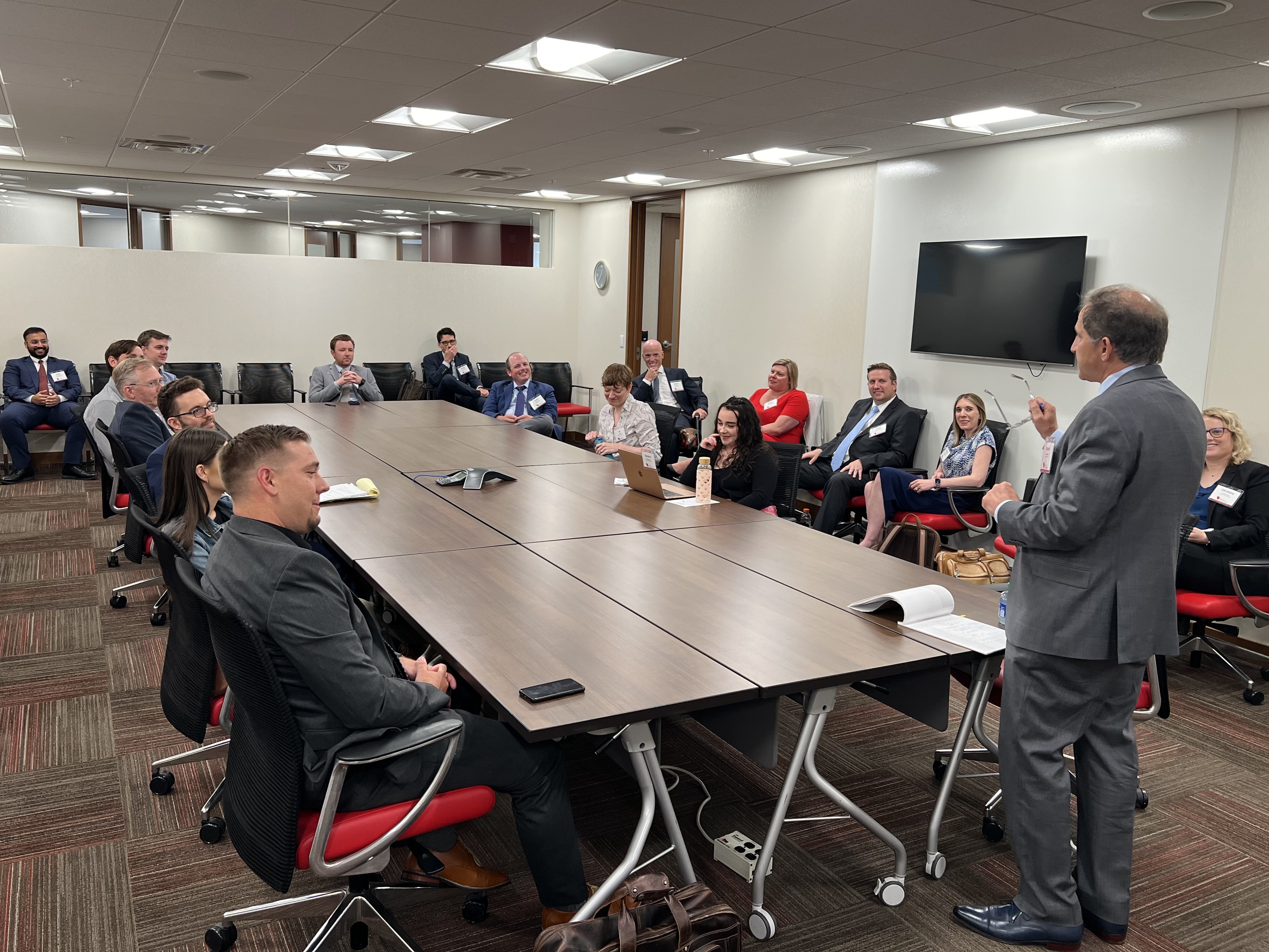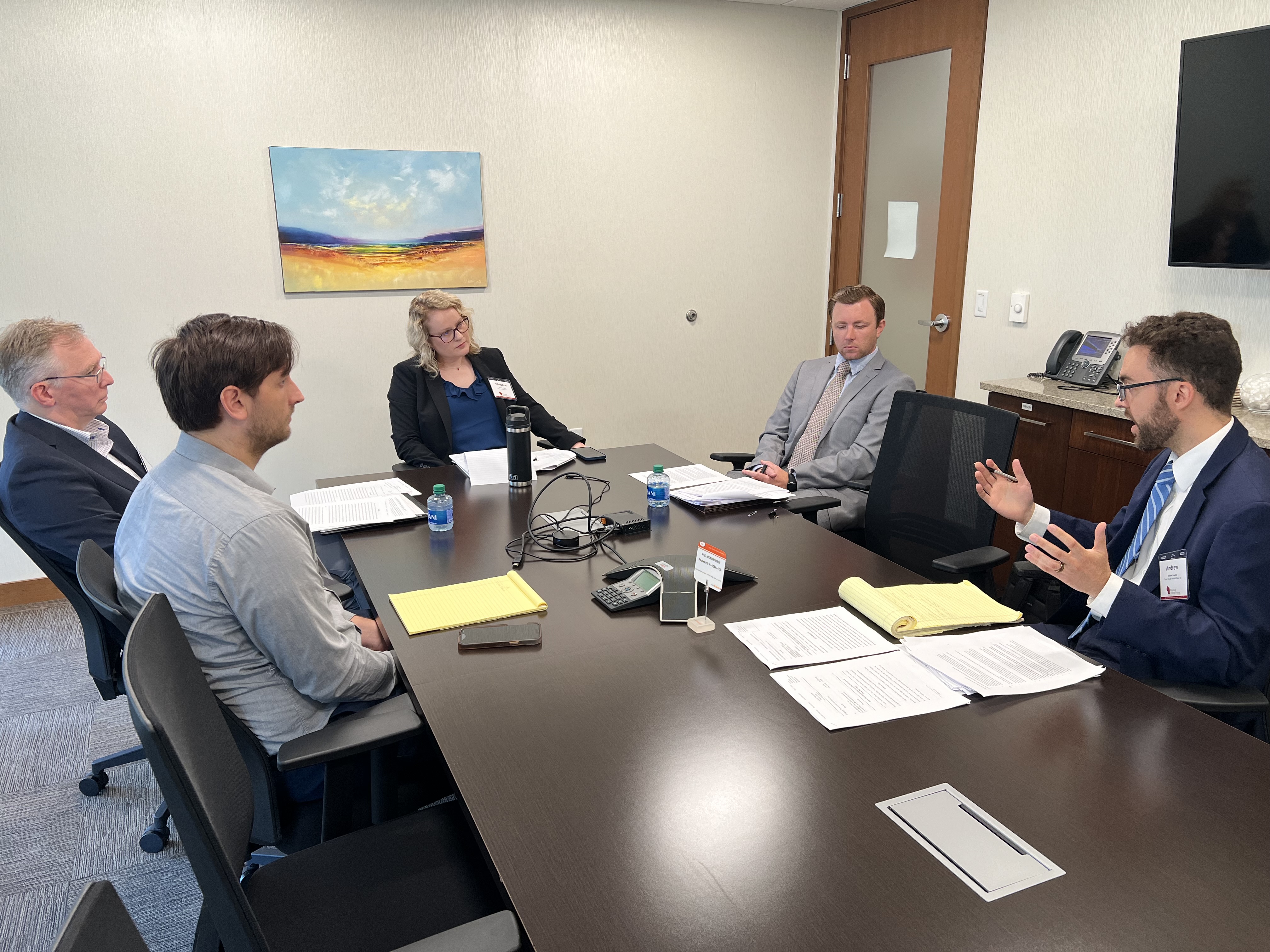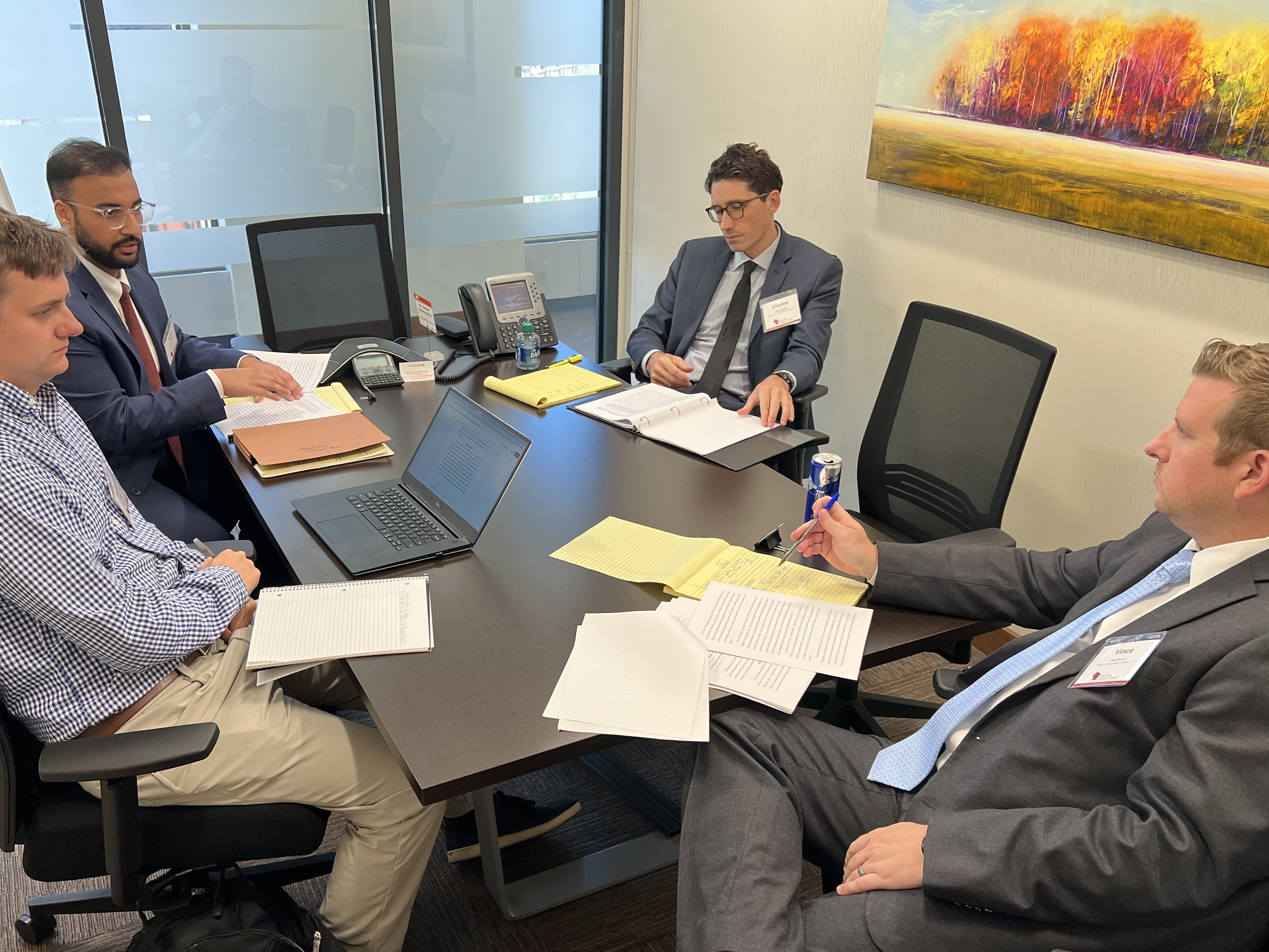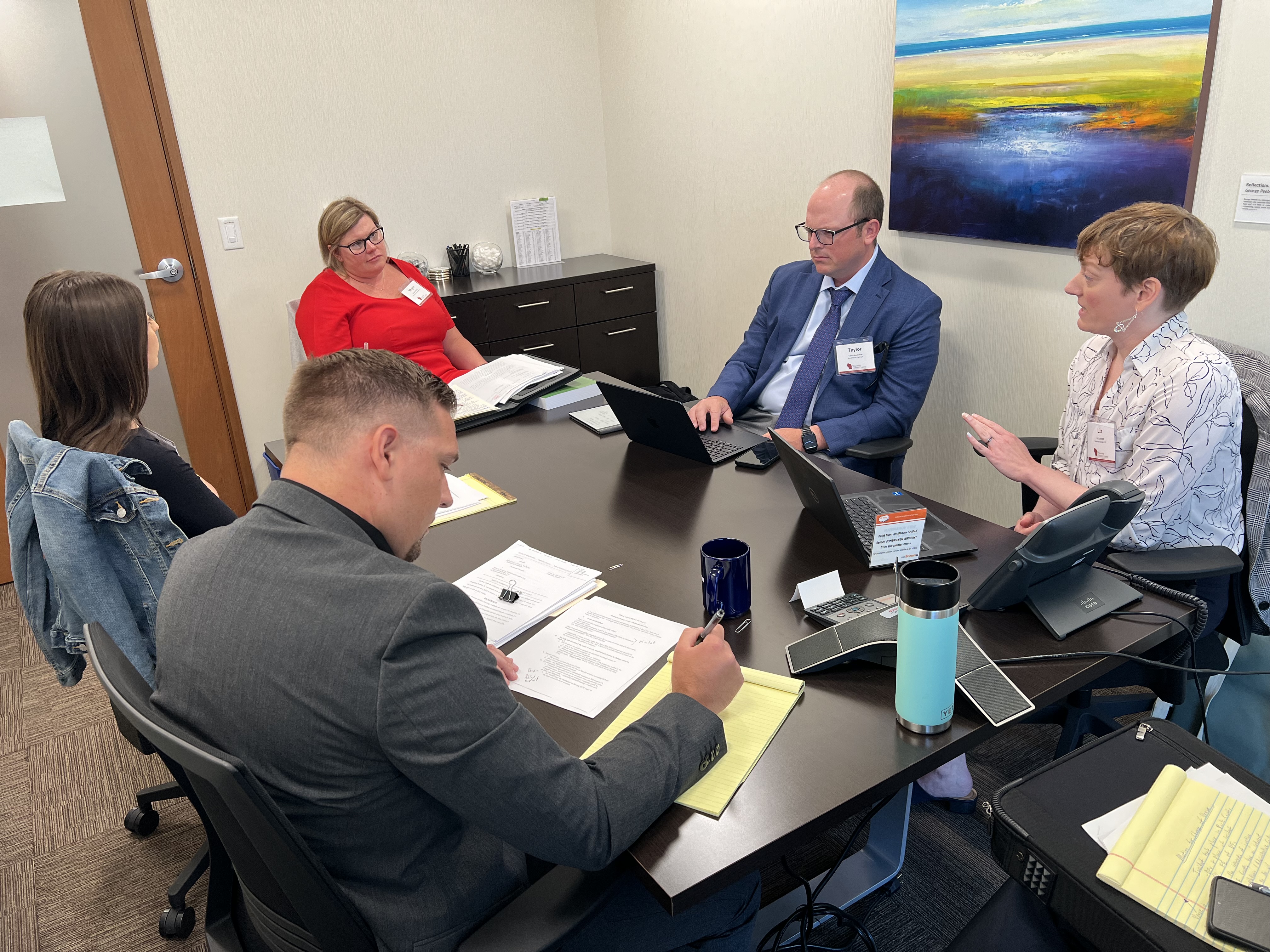|
President’s Message: The Importance of Effective Motion Practice Skills Recently, I attended a pretrial conference. The lawyers involved were older, seasoned attorneys. I had a minor role in the case, so I had the “pleasure” of sitting back, largely listening and observing. Ignoring my frustration at being sidelined, as I listened to the way counsel presented their arguments, I was struck by the unique benefits of our legal system. As I listened to the attorneys argue and watched the interactions between counsel and the court, I was reminded of the efficacy of our advocacy system. Counsel argued their points, responded to points as needed, and fielded inquiries from the court. Just as I was swayed by one side’s argument, I quickly saw the merits of the countervailing position. Our advocacy system requires argument. Arguments are necessary as after all, a “fundamental assumption of our adversary system that strong (but fair) advocacy on behalf of opposing views promotes sound decision making.”[1]
The arguments at the recent pretrial conference highlighted points that needed to be made, addressed counterpoints to be asserted, and thoroughly handled replies to arguments. As I listened to the arguments, I also paid attention to the way the arguments were presented. Sometimes, the way a particular argument was presented impaired the effectiveness of the point being argued. At other times, the presentation of a particular argument was very effective and very persuasive. It just so happened that I had the opportunity to “observe” another round of oral arguments in a different case. Like the previous hearing, my client’s interests (at least those interests that I represented) were not directly implicated in the motion hearing. Unlike the prior hearing, I appeared by telephone while other counsel appeared in person. Given that I could not “see” what was going on, I was limited to listening to the arguments. As I listened to the oral arguments, I was again struck by the choices made by counsel to present their points and counter those made by others.
One attorney started his argument by identifying a list of salient points that he wanted the court to focus upon. Once he identified the points, he then added substantive arguments for each. I suspect that he curtailed the extent of this supplementation as the court previously advised counsel that it had read all the briefing and was therefore familiar with the issues presented, which I thought was a smart move by counsel. Once counsel completed his argument, opposing attorney jumped in. He presented his argument with an example of a common, everyday occurrence as the mechanism to illustrate his point. Truthfully, I found myself swaying back and forth between the arguments, agreeing with one position and then agreeing with the points made in opposition. I suppose to some extent, my meandering adherence to a particular point was due to the fact that I had not read the briefing in any detail, nor studied the cases cited therein (at least not recently) as I did not represent the client on the issues being presented to the court. This willful blindness, however, allowed me to focus on the style and, to a lesser extent, the substance of the arguments presented – relying solely on counsel’s ability to effectively convey this information. This willful blindness also allowed me to assess the effectiveness of the oral presentation without having pre-decided the legal issue. In short, I allowed myself the opportunity to be convinced by the arguments and the manner in which those arguments were presented. I made judgment calls on what I thought worked and what did not. Every time I have the opportunity to watch arguments, participate in motion practice or appear before a court, I am continually reinvigorated to invest in our Wisconsin Defense Counsel’s defense skills workshop. The most recent skills clinic was focused on motion practice. Younger attorneys were given briefs on three different motions and set up in pairs. Each participating attorney argued each motion, sometimes on the plaintiff’s side and sometimes on the defendant's side. The goal of the skills clinic was to teach younger attorneys effective motion practice skills. These skills included developing arguments, assessing the opposing arguments, outlining the points to be presented and then, of course, arguing the motions before the “court.” Once each oral argument was completed, the “court” provided some feedback regarding what worked and what did not work for the participants and how to be more effective with oral argument.
The “gap” of effectiveness between experienced counsel and new attorneys that I had the opportunity to observe recently at the skills clinic was obvious, but also expected. The old adage that “we all have to start somewhere” is certainly true. That said, I do believe that the skills clinic was helpful to those that participated. The participants had the opportunity to practice arguing motions, assessing and responding to opposing arguments “on the fly” and then perhaps most critically, each participant received important feedback from the “court” on how to improve their argument skills. I believe that this training session will make these attorneys better advocates for their clients in their upcoming motion practice. This skills clinic, as well as the two skills clinics that preceded this one, are an important part of the Wisconsin Defense Counsel’s responsibility to help engage the younger generation. Our more experienced membership can provide knowledge and guidance to newer members so that the grade of their learning curve is reduced. While my time as President of this organization is rapidly coming to an end, I believe that this skills clinic program should continue as this is a benefit to our members. We have very experienced attorneys that have knowledge and skills which have been acquired over decades. This knowledge and these skills will be lost as retirements necessarily occur. So, we must take advantage of the opportunity we have now and continue involving our more veteran members before their wisdom and experience “rides off into the sunset.”
Likewise, as an organization, we must continue to engage the younger generation by continuing to provide value to their membership in this organization. Providing defense skills clinics is but one means to provide this value. Our committees are another excellent way to create and maintain interest in the Wisconsin Defense Counsel and enrich the lives of our members. However, this goal cannot be achieved through the effort of committee chairs alone. When the opportunity arises for involvement, I encourage our more seasoned members to continue to volunteer their time. An hour or an afternoon can make a significant difference in the success of a program or an event. I would also encourage our member law firms to continue to support their younger associates by making them aware of, encouraging them to attend and, of course, paying for them to participate in these events and programs. And, to our younger members, I encourage you to take advantage of what the Wisconsin Defense Counsel can do for you. The networking, educational, and practical skills training opportunities available to you through the Wisconsin Defense Counsel can help you with your career. Author Biography: Monte E. Weiss, Case Western Reserve Univ., 1991, of Weiss Law Office, S.C., Mequon, practices primarily in the defense of bodily injury, property damage, and professional negligence claims for insurance companies and self-insured companies. In conjunction with this area of practice, he has drafted several personal lines insurance policies, including homeowner and automobile policies. He routinely represents insurance companies on insurance contract interpretation issues and is a frequent lecturer and author on insurance topics. He also represents policyholders dealing with coverage denials from their carriers. He the current President of the Wisconsin Defense Counsel. Attorney Weiss can be reached at via his firm’s website at www.mweisslaw.net. [1]Neonatology Assocs., P.A. v. Commissioner, 293 F.3d 128, 131 (3d Cir. 2002). |




